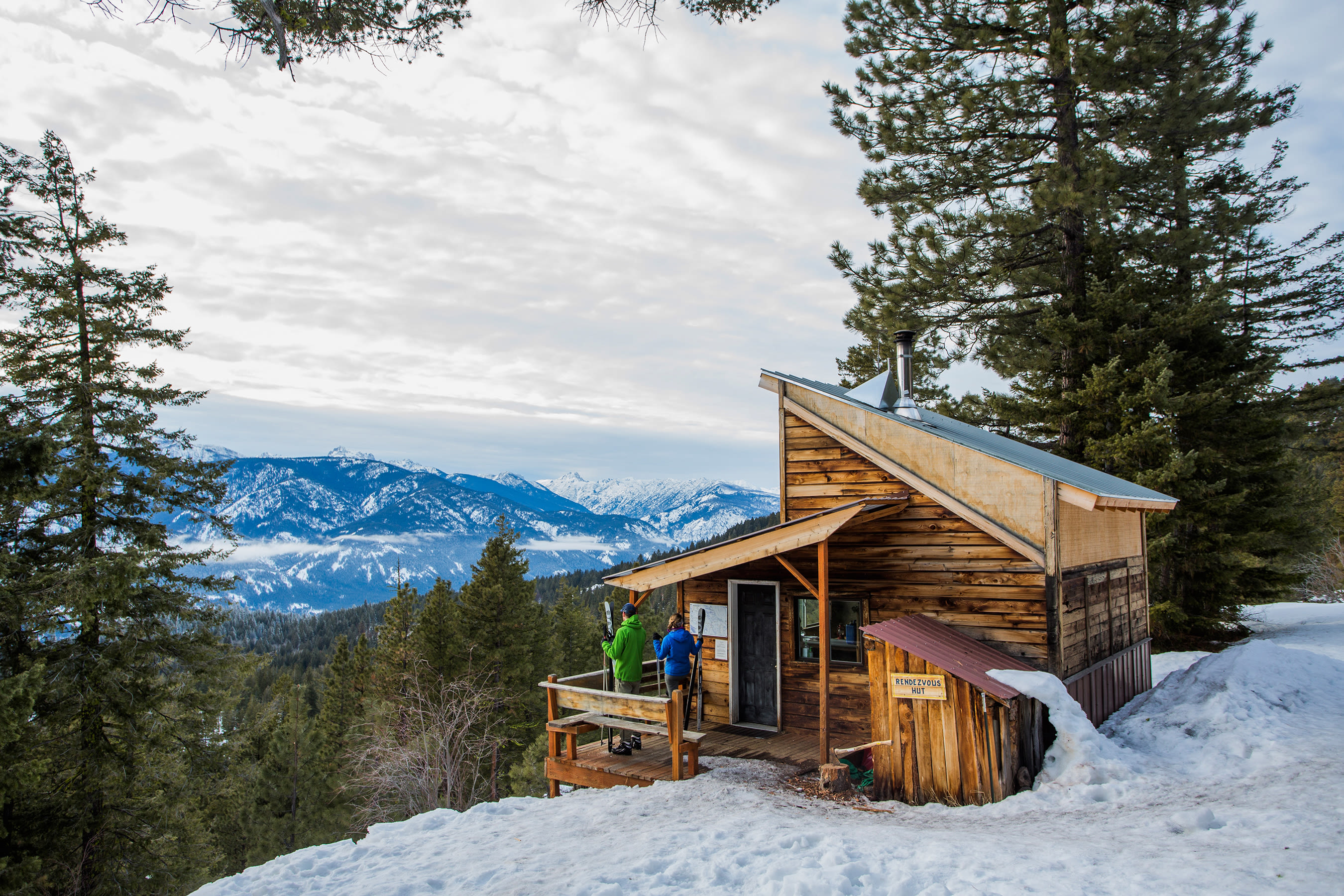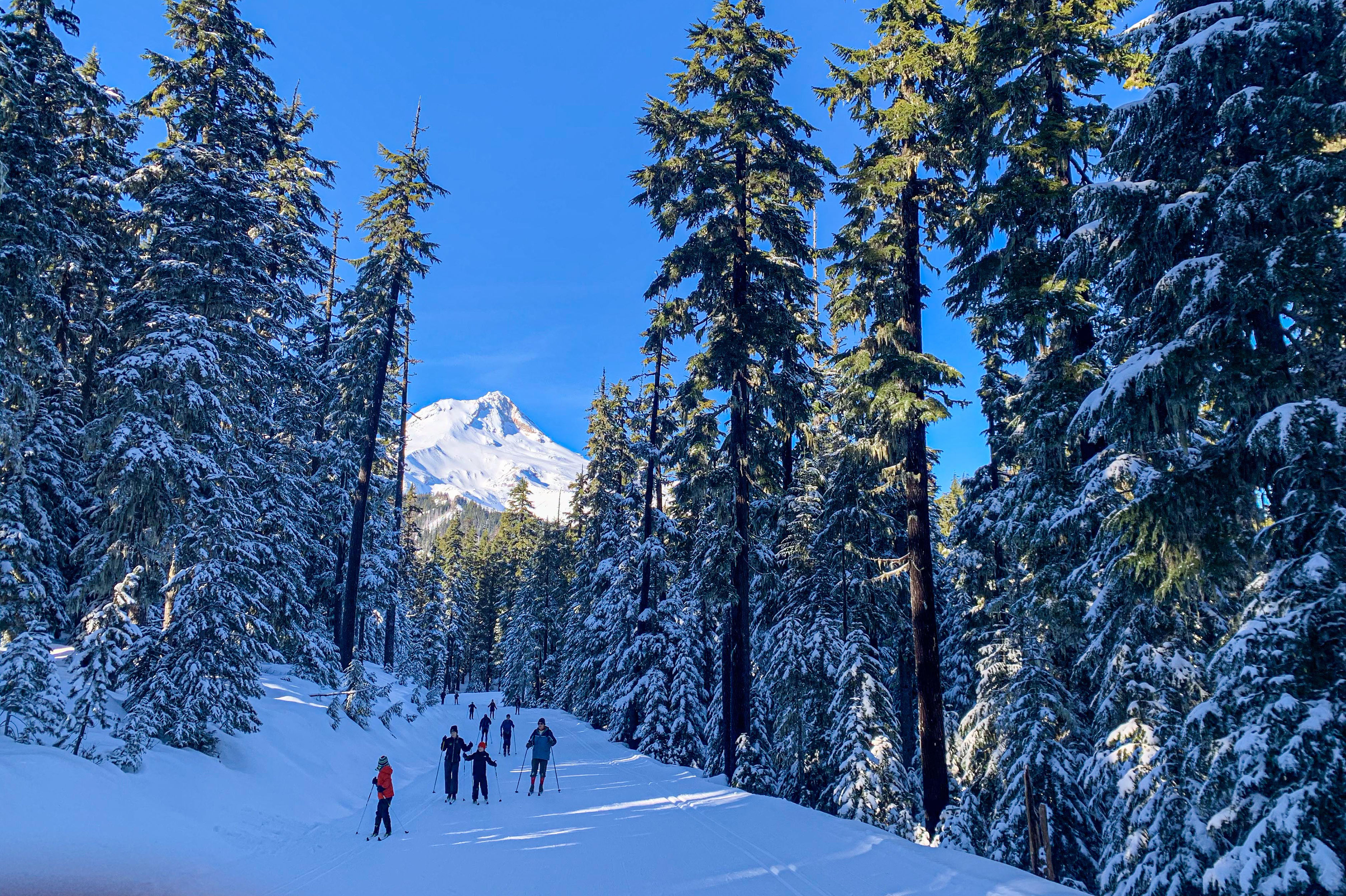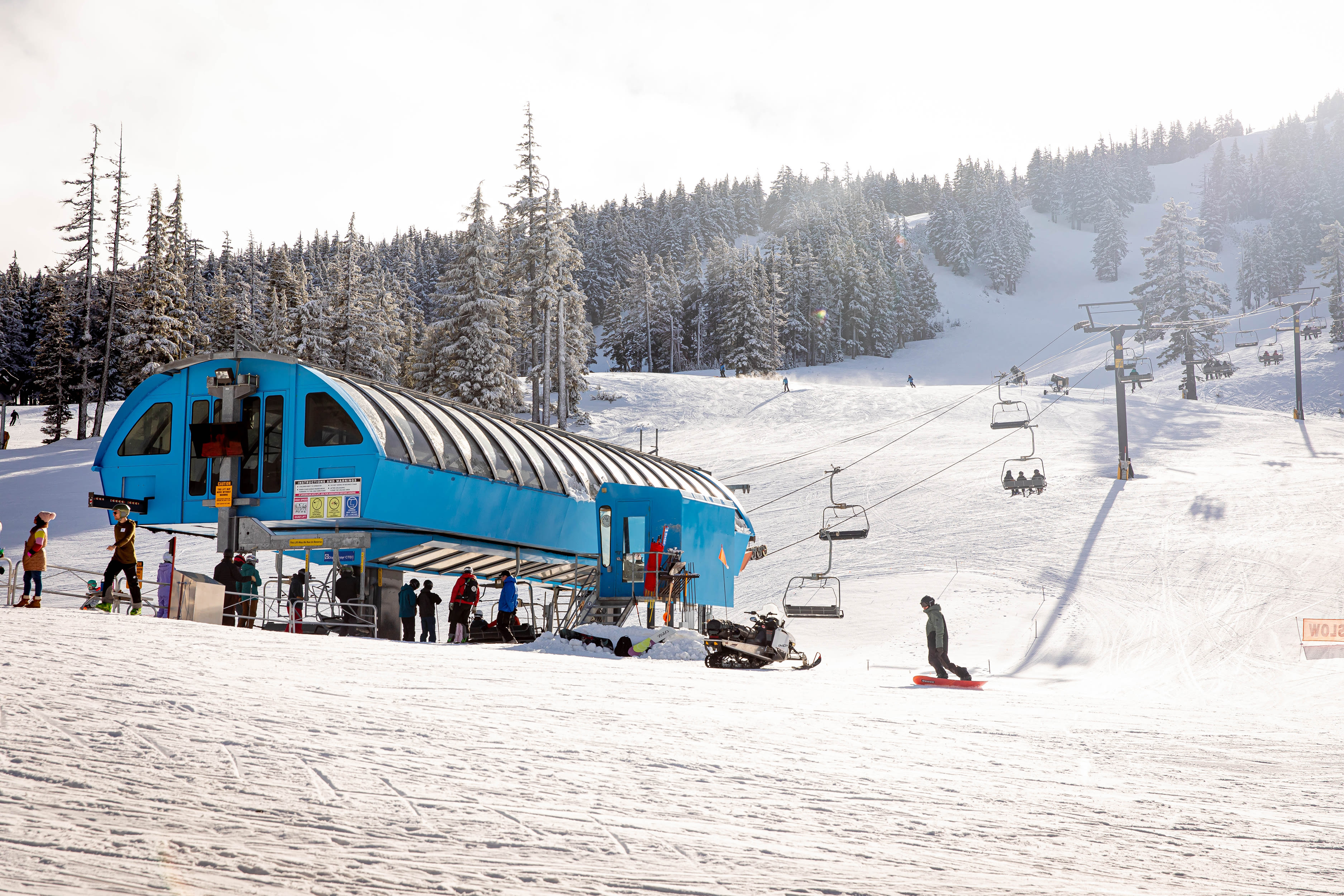Meet Astrophysicist and Former Elite Cross-Country Ski Racer Alison Crocker

Image: Courtesy Alison Crocker
In 2005, Alison Crocker was up for a spot on the US Olympic cross-country ski team. The Dartmouth College senior, who’d competed internationally since high school, had been skiing well—she’d had four top-five finishes in elite SuperTour races that year, and the previous year had placed fourth at the NCAA Championships.
In the end, Crocker came two spots shy. But she had an impressive backup plan: a Rhodes Scholarship to study astrophysics at the University of Oxford. Today, Crocker is a physics professor at Reed College, where her research focuses on star formation in nearby galaxies. And she hasn’t hung up her racing skis. Last year, she won two 15k races at Teacup Lake, where she’s also begun coaching kids ages 6 to 10—among them her older child.
We did more downhill skiing when I was younger. But after I broke my leg downhill skiing, my parents were like, Maybe we’ll do more cross-country. We were in Poughkeepsie, New York, which [doesn’t] get tons of snow, so we skied for [a club in] western Massachusetts. We’d drive two hours every weekend and stay at the Travelodge every Saturday night.
In high school, I started making international trips. My first [was] to Norway. We stayed in these little cottages right on the edge of the trail system, so you’d just pop out—you can ski forever; the trail system doesn’t end. And you go to this cute hut and buy a waffle, eat it, and ski back. It was so wonderful. That year this stomach bug passed through the teams, so the races were actually not super fun. But skiing in a country where skiing is so important will forever remain in my memory.
There’s a lot of downtime [in racing]. In college, professors [were] like, You’re gonna leave for two weeks in the middle of my really hard math class? You’re not going to be able to keep up. But you do your hard training, and you wax your skis, but there’s still a lot of hours in the day. People hang out, play cards, read books, and there was totally enough time to keep up with my math classes.
I was one of those kids who was interested in space. First grade, I remember learning about the planets. There [were] telescopes at the high school and a real astronomy class, and I remember taking spectra [wavelength patterns] of nearby stars and being like, This is awesome. The teachers didn’t know exactly what explained some of the things in the spectra, so I had to figure it out myself. I remember loving that detective work.
Learning to work hard in academics feeds into working hard in sports and vice versa. Like, there’s a puzzle and you have to keep thinking about it, not getting too discouraged. In training, putting in that volume of hours, putting in the effort on the intervals—you push your body hard enough that it adapts. Those things work off each other.
When it was time to look for professor jobs, I targeted places [where] I knew I’d be able to ski. That’s part of my life. That was part of the stipulation.
One of the downsides [in Portland] is that it’s always an hour-and-a-half drive, but the upside is that you can do it from, like, November to May. I was on sabbatical in New Hampshire two years ago, and it was like a rush—like, the snow is gonna melt the next day, so you just drop everything and go ski.
Mostly I’m skiing [at] Teacup. I love this one sweeping downhill where all the trees have that mossy, lichen-y stuff. It feels like you’re in this magical forest.
It was interesting going through periods where I was less fit after having kids and being like, Do I still like [racing] when I’m not winning easily? It’s strange to watch another woman be so much faster than me. But I like that mental battle, having to keep up a hard effort over a long period of time. There’s some real big slogs at Teacup, some really steep hills. Seeing if I’m up for the challenge is worth the discomfort.




